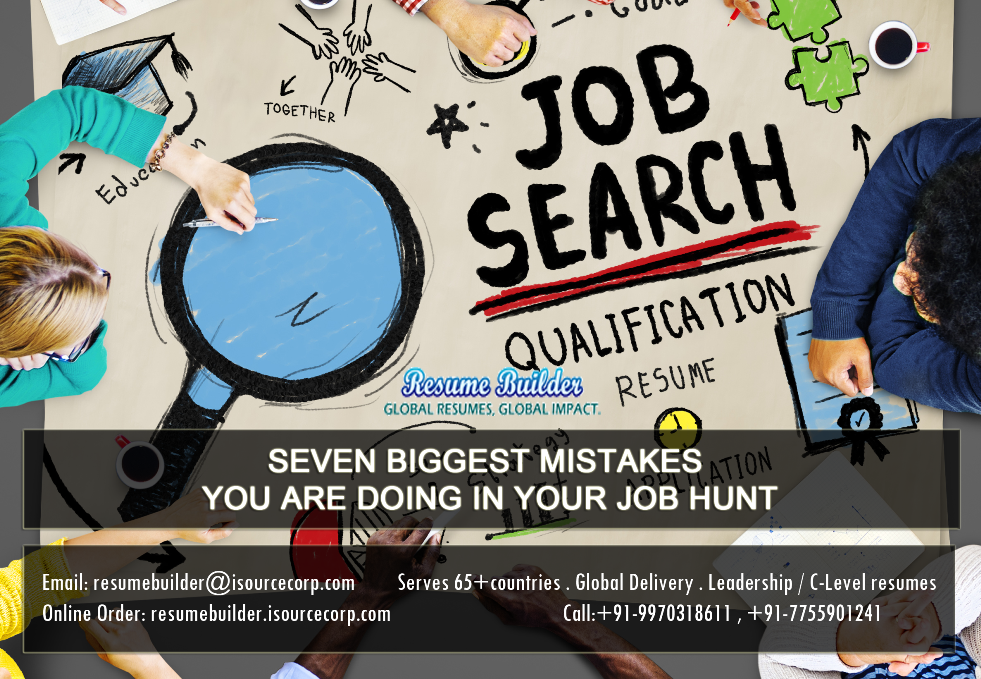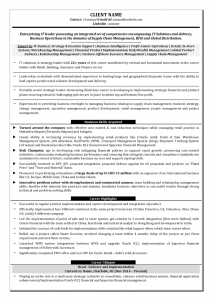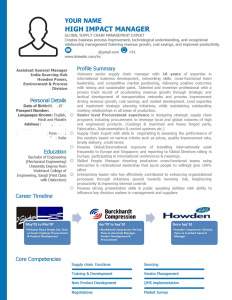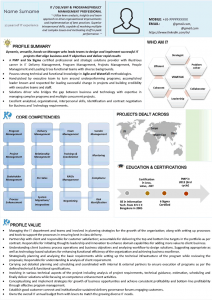Top reasons why resume length effects quality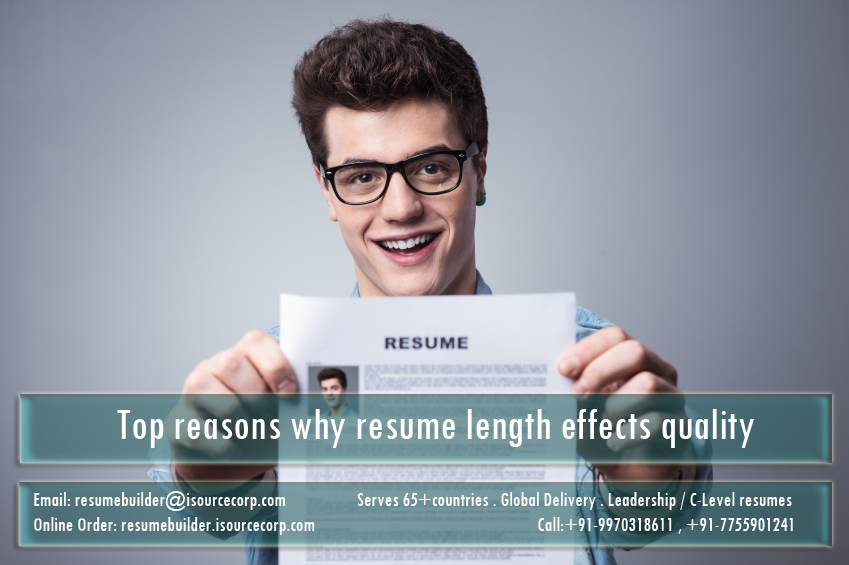
The key document in any job search, a resume has risen as the need of the hour in today’s job market. Whether you are a fresher, entry-level, mid-management, or senior leadership professional, a resume will not only become a medium to showcase your capabilities, but will also serve as a key tool in convincing a recruiter to either hire or fix up an interview with you.
A professionally crafted resume not only serves as a perfect portrayal of a candidate’s abilities, but also demonstrates their inclination on obtaining a particular role. A well-drafted resume acts as a recruiter magnet, making a candidate stand out from a crowd of similar or less deserving candidates who don’t fit with the requirements of a job.
With so much emphasis being placed on creating the perfect draft, the natural question that arises is that what do employers look for in a resume – do they seek lengthy, descriptive CVs, or do they prefer a quick-to-read resume? For this, let us quickly understand what are the two documents and the discernible differences.
Definition & Differences
A resume is a crisp and concise summary document of a candidate’s employment and academic background, as well their skills and abilities acquired over the course of the employment or academics. Modern resumes do not go beyond two to three pages at their maximum, no matter how long the employment experience is. These can be used by any professional, right from fresher to senior management professionals to apply for a job opening.
On the other hand, a CV is a comprehensive document that lists in excruciating detail, a candidate’s work history, skills, qualifications, and other professional pursuits, and is a document of unspecified length, and ideally should be more than four to five pages. In fact, the longer the CV, the better it is. This document can only be used by a professional with some experience, right from entry level to senior management professionals, and is mostly developed on demand by a job.
The length versus quality debate has been in the resume writing industry since quite long, and professional writers have varying opinions on it. While some prefer the detailed CVs, most prefer a quickly whipped and concise resume for catering to job needs. Both have their merits and demerits, which would be addressed in the subsequent part of the article.
The Quality Aspect
A resume is the initial impression that a recruiter has on a candidate, and might be the last one if it does not follow basic guidelines in drafting. A poorly conceived resume will hit the trash pile faster than you saying “job”. The prevailing preference for resume length is two to three pages; any longer and it deters the interviewer from calling you. A crisp resume offers the benefit of consideration from an employer for an interview call.
Individual companies have hiring processes that work differently. Researching the exact job applied for and tailoring the resume accordingly goes a long way – skill mapping with job requirement is literally one of the best ways to secure an interview call. Moreover, a qualitative resume will go a long way in presenting yourself as a valuable catch to the employers.
Another aspect to quality resumes is the way you present the information. A company with a formal corporate culture would prefer resumes that are simple and easy to read, while a creative job would offer more liberty to present the information. A quality resume would also comprise of highly unusual or unique skills that would be valuable to a company, and showcase your knowledge and talents.
The Length Debacle
Lengthy resumes are what professional resume writing terms as a Curriculum Vitae, since it provides an in-depth overview of experience, education, and skills over the course of several pages. Since these are in greater detail, they comprise of longer sections, and list out even the minor roles, responsibilities, and credentials at one place.
While cutting short on information in a quality resume allows a recruiter to read the key aspects of your career, a CV offers much more space in terms of expanding information related to responsibilities, achievements, academic and professional credentials, and more such things. As the career of an individual progresses, their CV will expand on the go.
A detailed CV finds its use in academic, scientific or medical fields that are looking for a more complete and comprehensive picture of a candidate. Mostly, European and Australian jobs ask for a CV, since they prefer detailing on a candidate’s professional background. For this, the additional space offered by a CV is a wonderful place to focus on a person’s skills, qualifications, and experience.
Conclusion
While both have their merits and demerits, what matters ultimately is their usage – use the documents that have been specified for a job opening, be it a resume or a CV. Also, a key point to keep in mind here is that while a CV might allow more room, it is advisable to not ramble, and keep it to the point so that recruiters can seek the required information easily.
Additionally, supplementing both documents with the latest and newest information is they right way, since it will enable you to apply for jobs instantly, without waiting to write down your document at the last moment. It also portrays you as an agile job seeker, who is ready to accept new responsibilities and challenges on the go
Author
Amrita Kolay
